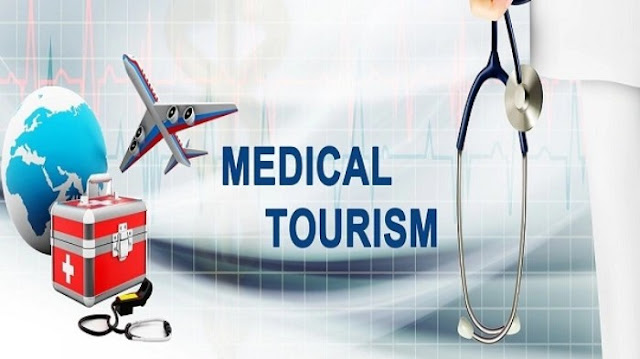Health Medical Tourism
Health and medical tourism refers to the practice of individuals traveling to different countries or regions to seek medical treatment, procedures, surgeries, or wellness services. This emerging industry combines healthcare with tourism, offering patients access to quality medical care, specialized treatments, cost savings, and an opportunity to explore new destinations. Here's a comprehensive guide covering various aspects of health and medical tourism:
Types of Medical Tourism Services:
Medical Treatments: Covering a wide range of healthcare services including elective surgeries (cosmetic, dental, orthopedic),
specialized treatments (fertility, oncology, cardiology), and more.
Wellness Tourism: Focuses on holistic health, wellness
retreats, spa treatments, alternative therapies, and preventive healthcare
services.
Reasons for Medical Tourism:
Cost Savings: Access to affordable healthcare compared to
expensive treatments in home countries, especially in countries where medical
expenses are high or not covered by insurance.
Quality Healthcare: Seeking specialized or advanced medical
procedures that may not be available or accessible in the patient's home
country.
Reduced Waiting Times: Shorter waiting lists for surgeries
or treatments compared to home countries where wait times can be longer.
Tourism and Recovery: Combining medical treatment with a
vacation or relaxation in attractive destinations, allowing patients to recover
in a pleasant environment.
Popular Destinations for Medical Tourism:
Asia: Countries like Thailand, India, Singapore, and
Malaysia are known for their quality medical facilities, skilled healthcare
professionals, and affordable treatments.
Europe: Some European countries, such as Germany, Turkey,
and Poland, offer high-quality healthcare services and advanced treatments.
Latin America: Countries like Mexico, Costa Rica, and
Colombia are popular for medical tourism due to cost-effective treatments and
proximity to the United States.
Middle East: UAE, particularly Dubai, has been growing as a
medical tourism hub with state-of-the-art facilities and specialized
treatments.
Factors Influencing Patients' Choice:
Quality and Accreditation: Reputation, quality of healthcare
facilities, certifications, accreditations, and expertise of medical
professionals.
Costs and Affordability: Competitive pricing for treatments,
transparent pricing, and overall affordability including travel and
accommodation.
Language and Communication: Availability of multilingual
staff or interpreters for effective communication between patients and
healthcare providers.
Destination Attractiveness: Safety, tourist attractions,
cultural experiences, and ease of travel contribute to the appeal of the
destination.
Challenges and Considerations:
Quality Assurance: Ensuring consistent quality of care,
adherence to medical standards, and patient safety across different healthcare
systems.
Regulatory Compliance: Navigating diverse healthcare
regulations, legal issues, and standards in different countries.
Travel Risks: Considering travel-related risks,
post-operative care, follow-up appointments, and complications after returning
to the home country.
Ethical Concerns: Addressing ethical considerations related
to medical practices, patient rights, informed consent, and transparency in
treatments.
Future Trends and Opportunities:
Technology Integration: Utilizing telemedicine, digital
health solutions, and AI for remote consultations, monitoring, and personalized
healthcare.
Partnerships and Collaborations: Collaboration between
healthcare providers, travel agencies, insurance companies, and governments to
streamline medical tourism services.
Focus on Wellness: Growing interest in wellness tourism with
an emphasis on holistic health, preventive care, rejuvenation, and alternative
therapies.
Conclusion
Health and medical tourism continue to evolve, driven by a
combination of factors including cost, quality, accessibility, and the desire
for unique experiences. As the industry expands, ensuring patient safety,
quality healthcare delivery, ethical practices, and seamless travel experiences
will be crucial for its continued growth and success.




Comments
Post a Comment